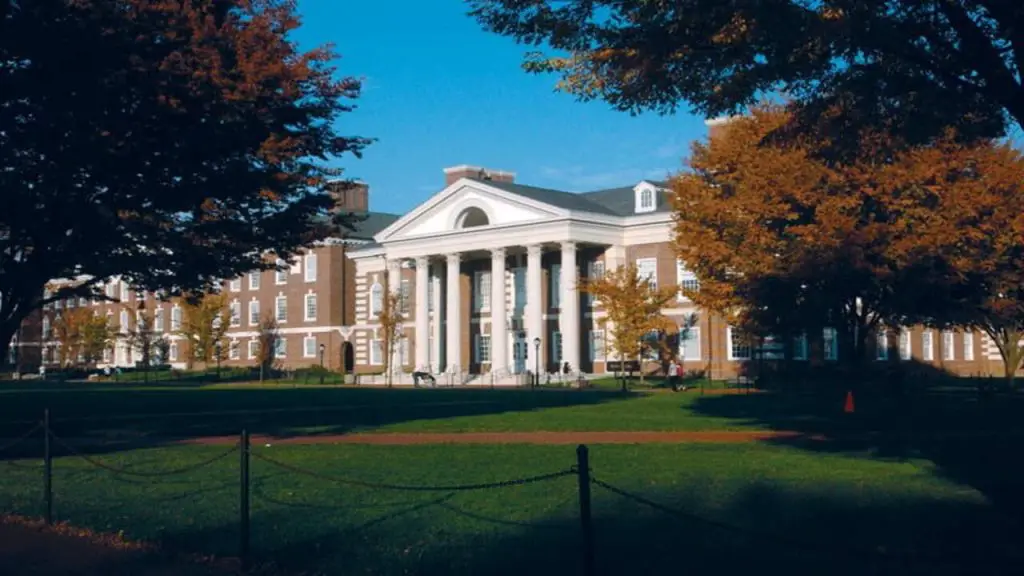Choosing the right university to pursue a Master’s in International Relations is a crucial decision that can shape your academic and professional path in this dynamic field. The field of international relations encompasses diverse subjects such as global politics, diplomacy, international law, and security studies.
Selecting a reputable university becomes paramount to receiving a high-quality education, gaining valuable skills, and enhancing your career prospects. In this article, we will explore the best universities in the United States for a Master’s in International Relations.
By considering factors like accreditation, faculty expertise, curriculum, internships, and networking opportunities, we will guide you through the top institutions that excel in preparing students for success in the realm of international relations.
Whether your career aspirations lie in government, non-profit organizations, think tanks, international businesses, or academia, a master’s degree in international relations will provide you with the necessary knowledge and understanding of global affairs to make a meaningful impact on the world stage.
Factors to Consider When Choosing a University for Masters in International Relations

- Accreditation and Reputation: Ensure the university is accredited by recognized bodies, indicating adherence to academic standards. Consider the university’s reputation, as prestigious institutions often offer better networking and career opportunities.
- Faculty Expertise and Research Opportunities: Look for experienced faculty members with expertise in international relations and research interests aligned with your own. Universities offering research opportunities and access to specialized research centers can enhance your academic growth.
- Curriculum and Specialization Options: Evaluate the curriculum to ensure it covers a wide range of relevant topics. Consider whether the program offers specialization options that align with your career goals, such as international security or conflict resolution.
- Internship and Study Abroad Programs: Practical experience is crucial in international relations. Look for universities with strong internship connections and study abroad programs to gain real-world exposure and cross-cultural understanding.
- Networking and Alumni Connections: Consider the university’s network and connections within the field. A robust network can provide internship and job placement opportunities, as well as mentorship from successful alumni.
Top Universities for Masters in International Relations in the USA
1. Harvard University:
Harvard University, located in Cambridge, Massachusetts, is widely regarded as one of the world’s premier academic institutions. The John F. Kennedy School of Government (HKS) offers a prestigious Masters in Public Administration (MPA) program with a concentration in International Relations.
The program provides students with a comprehensive education in global affairs, policy analysis, and leadership. Harvard’s distinguished faculty members, including renowned scholars and practitioners, bring a wealth of expertise and real-world experience to the classroom.
The university’s extensive research opportunities and access to resources such as the Belfer Center for Science and International Affairs, a leading think tank, enable students to engage in cutting-edge research and contribute to global policy debates.
Harvard’s rich history, global reputation, and vast alumni network make it an ideal choice for those seeking a top-notch education in international relations.
2. Georgetown University:
Georgetown University’s School of Foreign Service (SFS), located in Washington, D.C., is renowned for its excellence in international relations education. The Master of Science in Foreign Service (MSFS) program at SFS offers a rigorous curriculum that combines theory and practice to prepare students for careers in international affairs.
The program provides students with a deep understanding of global issues, diplomacy, and policy-making through coursework, case studies, and experiential learning. Georgetown’s prime location in the heart of Washington, D.C., provides students with unparalleled access to governmental institutions, international organizations, think tanks, and diplomatic embassies.
This unique proximity allows students to engage in internships, attend policy events, and connect with influential figures in the field of international relations.
Georgetown’s strong alumni network, which includes prominent figures in government, diplomacy, and non-profit organizations, offers exceptional networking and career opportunities.
The university’s campus culture emphasizes intellectual curiosity, social engagement, and a commitment to service, creating a dynamic and enriching learning environment for students.
3. Columbia University:
Columbia University’s School of International and Public Affairs (SIPA), located in New York City, offers a multidisciplinary approach to international relations education.
The Master of International Affairs (MIA) program at SIPA equips students with a comprehensive understanding of global affairs, policy analysis skills, and the ability to address complex global challenges.
The program’s rigorous curriculum covers a wide range of topics, including international politics, economics, security studies, and sustainable development. SIPA’s renowned faculty, composed of accomplished scholars and practitioners, brings a diverse range of expertise to the classroom.
The school’s location in New York City, a global hub of finance, diplomacy, and media, provides students with unique opportunities for internships, networking, and engagement with influential leaders and organizations in the field of international relations.
SIPA’s access to diverse research centers and institutes, such as the Saltzman Institute of War and Peace Studies and the Center on Global Energy Policy, allows students to participate in specialized research projects and contribute to policy debates.
The university’s vibrant campus culture promotes intellectual curiosity, interdisciplinary collaboration, and a commitment to global engagement.
4. Johns Hopkins University:
Johns Hopkins University’s School of Advanced International Studies (SAIS) is a prestigious institution known for its Masters in International Relations program. With campuses in Washington, D.C., and Bologna, Italy, SAIS provides students with a transatlantic perspective and unique opportunities for international exposure.
The program offers a rigorous curriculum that covers a wide range of international relations topics, including economics, policy analysis, regional studies, and global governance.
The distinguished faculty members at SAIS bring a wealth of knowledge and experience from academia, government, and international organizations.
SAIS’s location in Washington, D.C., facilitates internships, engagement with policymakers, and networking opportunities in one of the most influential cities for international relations.
The school’s proximity to governmental institutions think tanks, and non-profit organizations offers students unparalleled access to policy debates and real-world experiences.
SAIS’s Bologna campus provides students with a unique European perspective on international relations, allowing them to gain a deeper understanding of global issues and engage with European institutions.
5. Stanford University:
Stanford University’s Freeman Spogli Institute for International Studies, situated in the heart of Silicon Valley, offers a highly respected Masters in International Policy program.
The program prepares students to tackle global challenges through interdisciplinary research, evidence-based policy analysis, and a focus on the intersection of technology and global affairs.
Stanford’s renowned faculty, composed of leading scholars and practitioners, provide students with exceptional guidance and mentorship.
The institute’s research centers, including the Center on Democracy, Development, and the Rule of Law, and the Europe Center, offer unique opportunities for specialized studies and engagement with pressing global issues.
Stanford’s location in Silicon Valley, a hub of technological innovation, allows students to explore the impact of technology on international relations and offers unique career pathways and entrepreneurial opportunities at the forefront of global innovation.
The university’s vibrant campus culture, known for its spirit of collaboration and innovation, provides students with a dynamic learning environment and fosters connections with industry leaders and experts.
Careers in Masters in International Relations
A Master’s degree in International Relations opens up a wide range of exciting career opportunities in various sectors. Graduates with a strong understanding of global affairs, diplomacy, and policy analysis are in high demand in today’s interconnected world.
Here are some potential career paths for those with a Masters in International Relations:
- Diplomacy and Foreign Service: Graduates can pursue careers as diplomats, working for government agencies, embassies, and international organizations, representing their country’s interests abroad, and engaging in negotiations and policy analysis.
- International Organizations: Opportunities exist to work in renowned international organizations such as the United Nations, World Bank, or regional organizations, addressing global challenges, promoting peace, and working on issues like human rights and sustainable development.
- Non-Governmental Organizations (NGOs): Graduates can contribute to NGOs focusing on humanitarian relief, social justice, and environmental conservation, engaging in program management, policy analysis, and advocacy.
- Policy Analysis and Think Tanks: Careers in policy analysis and think tanks involve conducting research, analyzing global issues, and providing policy recommendations to governments and decision-makers.
- International Business and Consulting: Graduates can work in international businesses, trade organizations, or consulting firms, providing strategic advice on global market entry, risk analysis, and cross-cultural dynamics.
- Journalism and Media: Opportunities exist for careers in journalism and media, covering international events, political developments, and global issues as foreign correspondents, reporters, or analysts.
- Research and Academia: Some graduates pursue research and academic careers, conducting in-depth research, publishing scholarly articles, and teaching in universities or research institutions, shaping the field of international relations and mentoring future professionals.
Conclusion
A Master’s in International Relations offers a multitude of exciting career opportunities in diplomacy, international organizations, NGOs, policy analysis, international business, media, research, and academia.
Graduates with a strong understanding of global affairs, critical thinking skills, and cross-cultural competence are in high demand in today’s interconnected world.
By choosing the right career path and leveraging their skills and knowledge, International Relations graduates can play a crucial role in shaping policies, promoting peace, addressing global challenges, and working towards a more sustainable and inclusive global community.
Whether in the realm of diplomacy, policy analysis, humanitarian work, or research, a Master’s in International Relations opens doors to a rewarding and impactful career in the ever-evolving field of global affairs.
Additional Posts:

